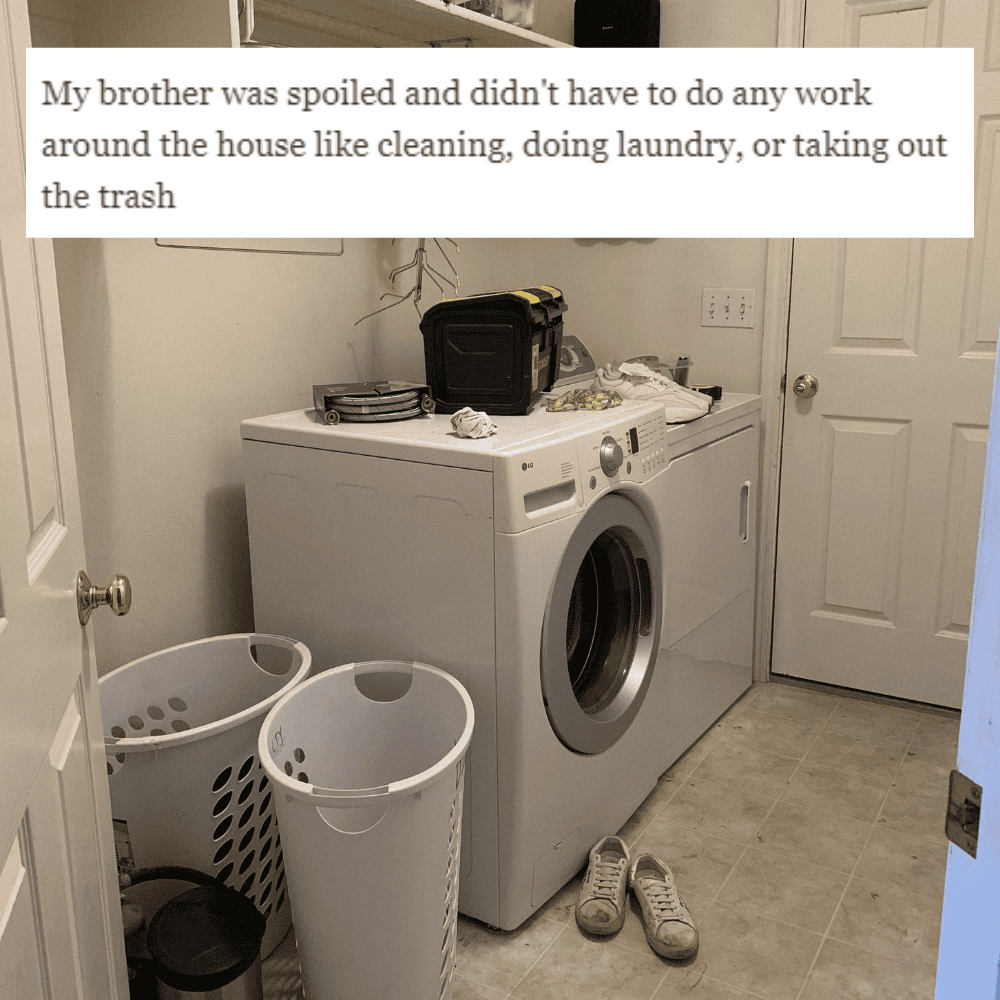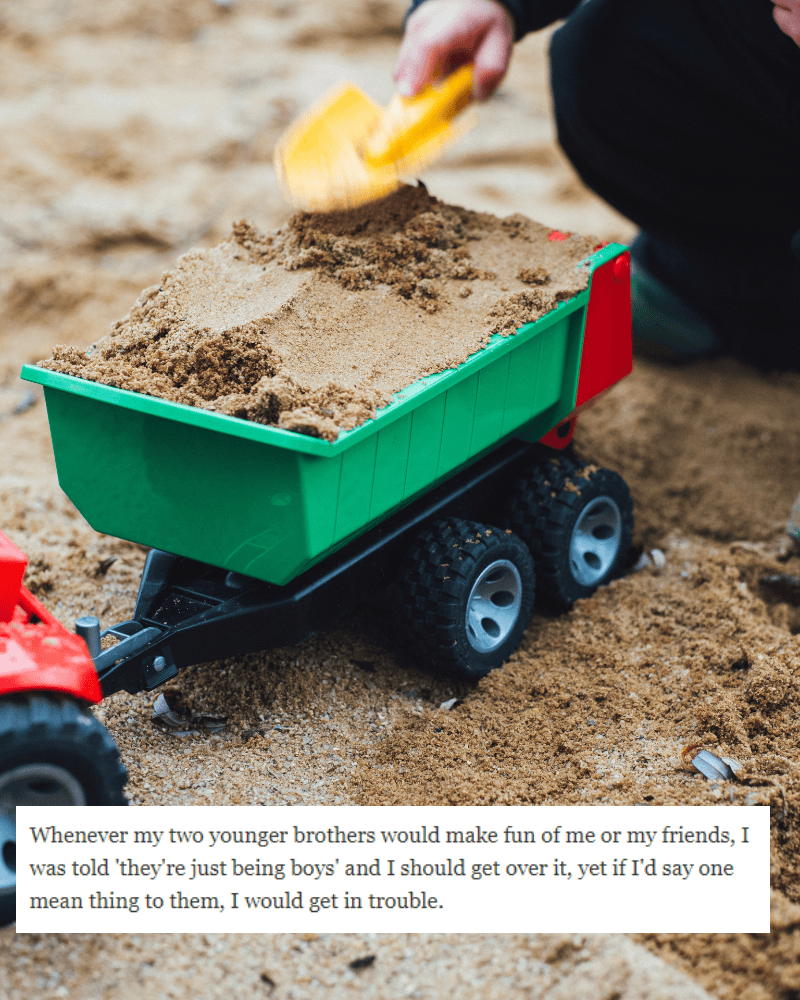25+ Women With Brothers Are Revealing How Their Parents Treated Them Differently as Kids, Just Because They Were Girls
This article appeared in fabcrunch.com and has been published here with permission.
As much as we’d like to think it’s in the past, chauvinism and misogyny are unfortunately alive and well on the planet right now. Many women have dealt with different treatment over the years compared to the men they knew, lived, and worked with. These women all shared some of their experiences growing up alongside brothers and some of the differences they saw in how they were treated.

"Boys Being Boys"
If there's one phrase that many women can't help but roll their eyes at or even recoil at hearing, it's the phrase, "Boys will be boys."

This phrase has been used time and time again to excuse inappropriate behavior from boys and men directed towards women and girls. This OP heard it really young when she was picked on by her brothers. Yet, if she did the same thing, it was a punishable offense.


